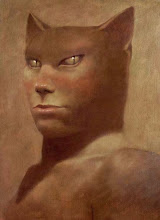Throughout life, I’ve always had a complicated
relationship with the films of the great Caribbean-born actor Sidney Poiter.
Now a sturdy 90 years young, the iconic thespian’s most famous movies, the ones
I used to enjoy on television as a child, featured an actor whom you couldn’t take your eyes off of yet his performances seemed to be indictments not of the black
experience, but the white one.
Whether it be Lilies In The Field, In The Heat Of The Night, or Guess Who’s Coming To Dinner, Poitier characters were the sole black face of any significance: the tragic negro who was simply a conduit for the white characters’ social conscience. Even though his very presence was important to me, the fact that a black star could even exist that wasn’t a stereotype, the fact that he seemed super-human and a righteously perfect made me think Hollywood used Poitier to trot out & herald its half-ass liberalism which finally made him less a person than an idea. He was certainly unlike any black man I ever knew.
Whether it be Lilies In The Field, In The Heat Of The Night, or Guess Who’s Coming To Dinner, Poitier characters were the sole black face of any significance: the tragic negro who was simply a conduit for the white characters’ social conscience. Even though his very presence was important to me, the fact that a black star could even exist that wasn’t a stereotype, the fact that he seemed super-human and a righteously perfect made me think Hollywood used Poitier to trot out & herald its half-ass liberalism which finally made him less a person than an idea. He was certainly unlike any black man I ever knew.
Still, over the years I came to appreciate the man for his
dignity and the academy award winning quality of his performances and the dynamism . – He was just
always fascinating to watch. Over
the years as he became more powerful, Poitier because he began
different kinds of roles, including romantic dramas that made him seem more accessible
as a human being, as well as taking on a career as a successful director.






















